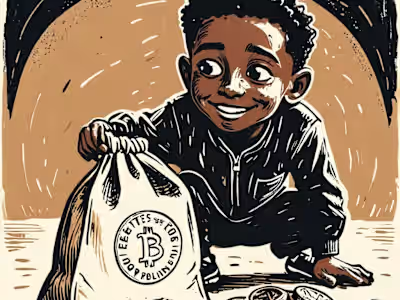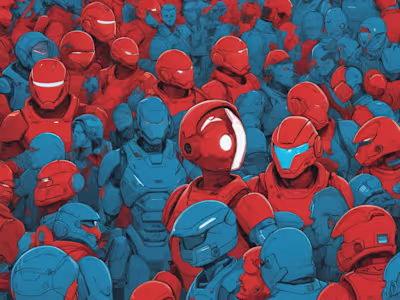The Tortured Prometheus
Like this project
Posted Jul 24, 2024
A comparative article focusing on the ways that the story of Frankenstein can be viewed as a retelling of the Prometheus story.
Likes
0
Views
2
It is not uncommon for classic novels to thematically retell stories from ancient mythologies. Stories such as Adam and Eve and Pandora’s Box have plots that are simple enough to boil down, that being humanity's endeavor to persist and progress against the blessings of nature or a greater creator. The story of Prometheus the light bringer, and one destined to be tortured for his devotion to humanity above the gods is part of the Greek mythos with a similar interpretation. The common correlation is between these stories is the punishment that those who defy nature are given. In Frankenstein by Mary Shelley, chapters four and five pose themselves as two of the most critical chapters because they cement Victor Frankenstein as the modern Prometheus. However, his lack of faith in the natural world and its ends creates a monstrosity within him that curses both him and his creature.
Throughout the novel, chapters four and five in particular, there is a constant mention of light, and the ways it appears in Victor’s life. Light, and its guiding powers, is part of his greater metaphor of being the modern Prometheus. Light is first mentioned in chapter four “A sudden light broke in upon me- a light so brilliant and wondrous, yet so simple.” (Shelley 43). Here Victor is describing the way his idea to create his own creature comes to him, “a sudden light broke upon me”. Light is mentioned again within Chapter 4 where Victor compares himself to a story about an Arabian man who is buried alive and is able to find his way to the passage of life through the aid of, “Glimmering and seemingly ineffectual light,” (Shelley 44). Not only is Victor using light as imagery for enlightenment again, but he is also comparing himself to someone discovering something using light as a tether to bring him closer to his goal. The final time light is mentioned in chapter four is as Victor is describing life and death as frontiers for him to explore, he explains that he should be the first to “Breakthrough, and pour a torrent of light into our dark world.” (Shelley 45). Just as Prometheus opened humanity's eyes by bringing them light in the form of fire, Victor plans to open humanity's eyes by bringing them immunity from death in the form of his eventual creation.
Just as Prometheus succeeded in defying the gods and bringing light to humanity, Victor succeeded in defying the natural order and bringing life to his creature. Victor throughout chapters four and five speaks of the way that he sees death as unfair and cheating humanity. In chapter four he talks about how learning anatomy was not enough he had to learn about the way in which humans naturally decay. Frankenstein describes decaying as a corruption of the human body (Shelley 42). The word ‘corruption’ is loaded, it implies that there is something unnatural or unfair about the way the human body decays after death. Again within chapter four, he describes a graveyard as a receptacle of bodies deprived of life (Shelley 43). The word ‘deprived’ is weighted, to deprive something meaning suffering a lack of something. Here it’s as if Victor is personifying death claiming it acts deliberately to deprive those of life. On page 45 of chapter four once again Frankenstein uses the word “corruption” to describe the actions of death. In this passage, Frankenstein is talking about how he is taking it upon himself to “renew life where death had apparently devoted the body to corruption.” (Shelley 45). The personification of death is so strong here in the language Victor is using. Death is to Victor as the Gods were to the titan Prometheus. Death is a force for Victor to defy, just as Prometheus tricked the gods to aid in humanity's survival, Victor is tricking death and the forces of nature.
Such as Prometheus is punished for his trickery against the forces that be, so is Victor. Prometheus is condemned by the god Zeus to have his liver eaten and regrown every day for all of eternity. When looking at the novel as a whole, the creature's persistent torture would be the obvious connection. Moreso, within chapter five the very conception of the creature as a failure is also a form of punishment for Victor specific to that chapter. Similar to Greek myths and even stories from the bible, his wish or desire becomes his punishment and undoing. He chooses to create the creature to be beautiful and made in his own image. However, because his rejection of death is in itself monstrous his creature's soul is reflective of his own, not evil yet defiant and monstrous.
Victor is characterized as monstrous not only because of his misdeeds but also because it can be interpreted that Mary Shelley’s idea of monstrosity is the absence and potential rejection of humanity. Frankenstein is monstrous because his pursuit of knowledge comes from his rejection of death as a natural and just force. Death being paramount to humanity poses Victor’s rejection of it as a lack of acceptance of humanity, thus monstrous. Therefore, despite Victor’s creation being technically beautiful and within his own image, his soul lacks humanity and that is reflected in the monster's eyes. In the passage, the creature first rises Victor is able to identify that the creature is objectively well put together and attractive. But upon describing the eyes of the creature, that is the true horror of him. “...these luxuriances only formed a more horrid contrast with his watery eyes, that seemed almost of the same color as the dun-white sockets in which they were set,” (Shelley 49). The creature is tall, the extent of which may be offputting, with luscious hair, hearty muscles, and beautiful teeth. His eyes, however, are unable to capture any sense of humanity. The eyes are often framed as the metaphorical windows to the soul and indicators of humanity and soulfulness. For everything about the monster to be perfect except for his eyes, is the monstrous nature of Victor’s soul ruining his creation and mocking his efforts.
In the reading of the two chapters as well as the rest of the novel, monstrosity is more equated to its relation to humanity rather than morality. Lack of acceptance of what is natural, and what comes associated with the human experience creates not only monstrosity but puts people at odds with nature. What is interesting about Victor Frankenstein as the modern Prometheus is that Prometheus's story creates a more black-and-white outlook about the morality of going against nature and higher powers. We are meant to believe in Prometheus’ efforts because fire is necessary for the survival of humanity, tricking the Gods was the only avenue to assure human success. In Victor’s case, his tumultuous relationship wit the natural world and ‘tricking’ of death creates a situation where what he attempts to bring to humanity is monstrous thus putting into question the morality of his efforts.




